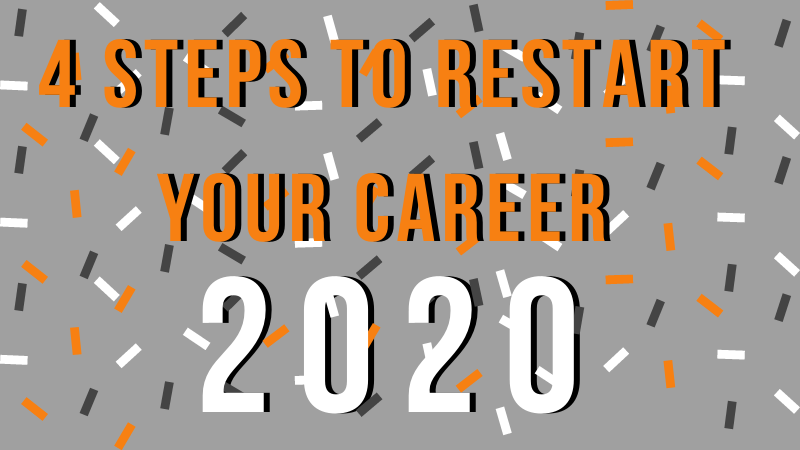
2022 is here, and while many are still trying to navigate the fallout from (gulp*) 2020, others are bearing witness to the perennial wisdom that upheaval creates new opportunities. Industries across the board have had to retool and rethink strategies that reliably produced results until all of a sudden…they didn’t anymore. Change, the other cosmological constant, was intensified to a revolutionary pitch.
We are all in new territory, and employers are looking for innovative, forward-thinking assets to help them capitalize on new opportunities presented by–among other things–the decentralization of the workplace. This means, in part, that candidates who are equipped to gracefully maneuver across shifting ground are in high demand. On a practical level, presenting yourself as just such a person with a living resume is a great way to start.
A “living resume,” is one that is dynamic, ever-evolving, and reflective of your individual competence, flexibility, and potential. The following 8 strategies are steps that you can begin taking immediately in order to ensure that your invaluable first impression is memorable, impactful, and effective in 2022.
- First the elephant in the room–you must be disciplined. Building a standout resume takes discipline and dedication, especially when you find yourself in a comfortable position. As we all know, the days of working a few decades in the same role are long gone, which means that you must force yourself to be constantly thinking about the next opportunity. Acknowledging the uncertainty of the future and consistently acting with this uncertainty in mind is the first step; it is the “inside job” that allows you to prepare and position yourself effectively.
- One great way to do this is to develop a pattern of consistent and thorough documentation of your accomplishments and responsibilities. You don’t have to add them to your resume right away, but you should keep a running list of any new projects, skills, and responsibilities you assume in your current position. If nothing else, such a document will allow you to update your resume quickly when the time comes. This is especially useful if the worst-case scenario forces you to find a new job yesterday. Stress is inimical to memory, and if you have to send out resumes in a hurry, the last thing you want is to short-change yourself. Document now so you don’t forget later.
- Schedule specific time slots for updating your resume and stick to them. This isn’t exciting work, plus it forces you to think about the contingency and possible precariousness of your employment. These are strong disincentives that must be overcome. The best way to do this is to set dates for yourself. Think of it like scheduling an appointment with the dentist or going to the gym. You will never feel like doing it, but will inevitably appreciate the effort when the time comes to present your resume to a new potential employer.
- While working on your resume in the allotted time slot, focus on impact. Employers want concrete examples of how you have delivered results. This is particularly true regarding your demonstrated ability to encounter the unexpected. Here, numbers are your best friend. How many days before a deadline did you complete a project? How much money did you save your employer? What specific actions did you take to solve a problem? Impact is demonstrated in concrete terms. Don’t claim to have simply “improved” a situation, tell a story about precisely how your actions constituted an improvement for your business.
- Check on details that affect style and readability. Believe it or not, there are trends in resume writing that stand to affect your reception by a potential employer. Click here for a checklist of style considerations to make when updating your resume.
- Selectively cater your resume to each position in which you are interested. It is extremely tempting, once finished, to clap the dust from your hands and bombard any and every interesting position you find with your freshly refurbished resume. This is not ideal, and in all likelihood will not work very well, especially as the desirability of a given opportunity increases. The last thing you want is for a recruiter or hiring manager to look at your resume and have to connect dots in order to understand how you are a viable candidate. Take the time to investigate the particular job descriptions in which you are interested, pull key terms from those descriptions, and explicitly incorporate them into your resume.
- After tailoring your resume, save several iterations of it for future use. If, for example, you know that you are interested in positions that are not peculiar to a specific employer (project management, corporate training, or human resources, for example), craft and save a version of your resume for each and reuse it whenever an appropriate position blips your radar. You should still tailor your resume to each position, but the number of changes needed will be minimized if you have several versions of your resume on deck.
- Include a “hobbies” section in your resume. Your hobbies might seem irrelevant, but briefly including them highlights your curiosity and individuality. Employers want human beings, not robots, and your hobbies are a reflection of your personality. That being stated, your hobbies should not take up too much space in your resume and should not appear to take precedence over your education, professional experience, and accomplishments. Think of hobbies as garnishings–a little goes a long way.
Every time January 1st rolls around, we take stock of the previous year while anticipating the future and imagining how we might improve it. We set goals and mark up calendars, magnet photos of ourselves to refrigerators that remind us of where we have been or where we would like to end up. We invariably consider our careers and how they stand to be improved. If you have found yourself dreaming of new opportunities in your career, one of the simplest and most effective ways to improve your situation is to ensure that you are as appealing as possible by maintaining a living resume.
Your resume is the invaluable first impression that sets the tone for all subsequent interactions with a potential employer. Make it a goal this year to give yourself every advantage that is within your power. Schedule time each month to enliven your resume. You’ll thank yourself when 2022 rolls around, and ‘23…









.png?width=695&name=5%20Ways%20(1).png)


 It can be tempting to put off thoughts about your
It can be tempting to put off thoughts about your 
